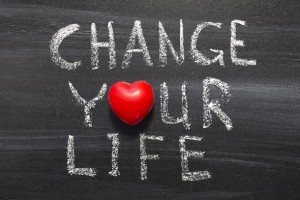How can I trust you?
When life has taught me not to trust.
How can I depend on you?
When life has shown me that people let you down.
How can I believe you?
When I have been told many lies.
And how can I have faith in you?
When I don’t have faith in the world around me.
I need to feel safe. Yet I don’t know how too.
I need to feel secure. Yet that’s never been easy for me.
I need to trust you. Yet I’m terrified that If I do – you will let me down.
Trust.
Such a simple word.
Yet such complexity behind it.
We are born into the world dependent. We rely on our caregivers to take care of us. As babies all our basic needs – they are met by the adults that look after us.
But what if those adults let us down? What if they are unavailable to us from the outset? What if our modelling is absent parents – what do we learn then? Well we discover that our needs can’t be met. We grow up as children knowing that it isn’t ok to ask for what we need and that it isn’t safe to express how we feel.
In childhood if trust is broken it has such a lasting impact. If the people you turn too for care and guidance lie to you or let you down in some way. If they don’t meet your needs. If they continue to disappoint or hurt you. Even worse if they abuse you. What do you learn then???
That in some way you are not good enough. You are not worth loving, you are not valued or cared for. You don’t deserve respect. But fundamentally above all of that – you learn not to trust. You learnt not to depend. You learn that you – yourself – you are the only one you can truly rely on.
This carries on into adulthood – if as a child you never trusted or felt emotionally or physically safe. How can you then be expected too as an adult? How can you rely on or trust friends? How can you form healthy romantic relationships? How can you choose partners that will be there for you? You don’t know how too after all. And as a result. You find yourself repeating cycles. Ending up in toxic relationships or being with people that let you down in some way. That hurt you. That break your trust even more – and that’s so painful when it was hardly there in the first place.
If as an adult your faith and trust is damaged even more – then you can become even more fragile. This is where people often develop negative coping mechanisms. Dangerous relationships with food, alcohol, drugs – the list goes on. This is where people begin to neglect themselves and to turn towards patterns of behaviour that aren’t good for them. After all – why would you want to try and let someone in – when all they will do is hurt you? It becomes ‘easier’ for many people to keep others at bay. It is far to scary to let people in when you have been so hurt. To step out of a comfort zone is frightening and it takes a massive leap of faith.
 The scary part is stepping out – trying something new. Learning how to be with someone that won’t break your trust. Listening, communicating and giving chances. That’s tough. That’s scary. It feels far less scary to stay in a comfort zone. To retreat and turn to default positions. To lean on behaviours and coping mechanisms that you have used for years.
The scary part is stepping out – trying something new. Learning how to be with someone that won’t break your trust. Listening, communicating and giving chances. That’s tough. That’s scary. It feels far less scary to stay in a comfort zone. To retreat and turn to default positions. To lean on behaviours and coping mechanisms that you have used for years.
But if you think about it – this leaves you trapped. It leaves you stuck. Never really being able to let someone in. Never really being able to give things a chance and never really being able to move forward. Small steps – tiny ones even – in the right direction. They can make a real difference and open the possibility for real change.
Trusting is scary. But honestly – if you never try – you will never know.
- Communicate – no matter how difficult you find it – all talk about how you feel.
- Open up – as hard as it is share who you are and what you have experienced.
- Express yourself – even if you feel afraid. It’s so important to express your emotions’
- Accept re assurance – the right person will offer it to you. If they want you to trust them – they will continue to re assure you.
- Ask for what you need – letting someone in isn’t easy. But if you ask for what you need it is far healthier.
- Talk to those around you – if your struggling lean on other people that you feel safer with.
- Take time for yourself – make room in your life for the things that you need.
- Self-care – make your own well being a total priority.
- Be rational – lack of trust can lead to insecurities and irrational thinking. Try to calm yourself down when things get overwhelming.
- Seek therapy – if things get too much and you’re really struggling with trust – go and see a therapist. It can make a huge difference.
- Above all – remember to value who you are.

